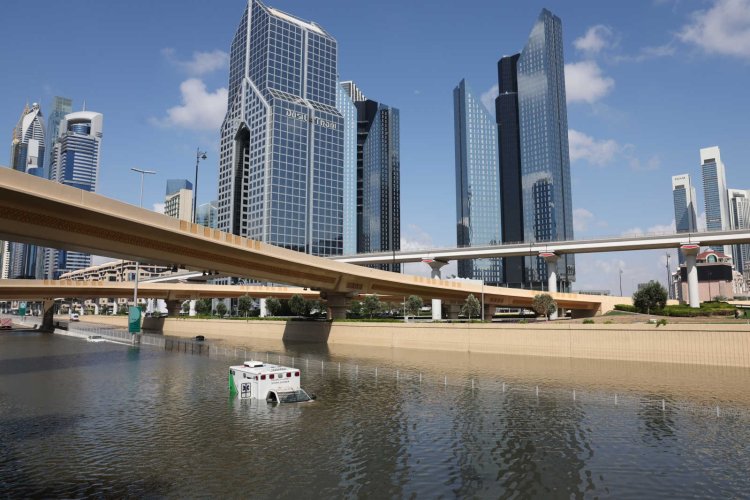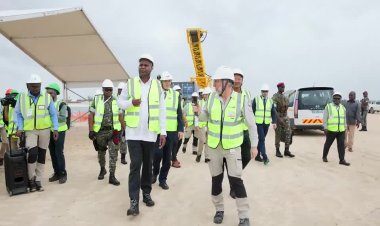UAE Struggles with Flood Fallout

Images show damaged roads in Sharjah and Ras al-Khaima, nearly a week after record downpours triggered flash floods in the United Arab Emirates.
The failure of water to drain away has proved a major obstacle to recovery efforts in the desert country, with persistent flooding blocking roads around Dubai days later.
Impassable roads have affected basic services, with supermarkets unable to restock and many employees struggling to reach their workplaces.
Dubai's airport, the world's busiest for international passengers, has suffered badly from staff shortages with flight cancellations and delays expected to continue into the weekend.
Without drainage for excess water, authorities rely on pumping trucks to suck it up with giant hoses and drive it away.
Four people died after the heaviest rainfall on record in the oil-rich UAE, including two Filipino women who suffocated inside their vehicle in Dubai's flooding.
Climate change will make extreme weather events more common, saying the storm -- which dumped up to two years' worth of rain on the Persian Gulf country -- was consistent with the effects of global warming.
UAE President Sheikh Mohamed bin Zayed has ordered at-risk families to be moved to safety and directed an urgent study of the country's infrastructure.
While Haq is reassured by the support, uncertainty remains.
"We don't know when we will be able to come back to normality," he said.
"They are using tankers to remove the water. It will take days. But I'm sure the authorities will do everything they can to get us back to our homes."
Some 1,244 flights were canceled and 41 diverted, after torrential rains flooded the Middle East financial center including its runways and highways.















